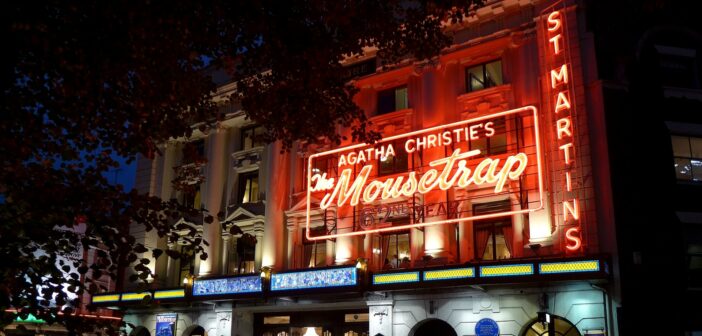It is no secret to any of us that the government’s handling of the pandemic came close to ruining the theatre industry as we know it. Not prioritising the performers led to shows across the country being constantly unsure of when they could start back up. What were the rules for closing a whole performance? It forced many casts and crews to function in a limited capacity, cutting numbers and scenes. You may remember the “Fatima” advert – the industry felt like it had been betrayed by its government.
The most outspoken production in the West End about these issues has been Andrew Lloyd Webber‘s Cinderella, which closed earlier this year. It was the subject of the most scrutiny and difficulty during the pandemic, as it was the only show in the district to open its doors for the first time during the pandemic. Lloyd Webber battled for more rights for his show as they struggled to open, forcing them to flip between opening and closing constantly, leading to an incredibly premature closing.
This raises the question: has the pandemic foreshadowed the beginning of the end of the theatre industry in London?
In my opinion, no, but the future of theatre is transforming. I think it’s very easy to look at all the big, high-budget shows closing around us and think…”is this the end?” However, realistically, it really is only a handful of shows closing. We notice them more because they are the big names we have inherited from Broadway that only came to the West End around COVID time, and ones that have lived in big, iconic theatres. For example, the run of Dear Evan Hansen ends in October 2022, but the pandemic has meant it ran for a lot less time than it should have. It came first in 2019, ran for roughly 6 months, and then returns in October 2021 only for it to close a year later. This was definitely a shock to fans, but it isn’t out of the ordinary that shows inherited from New York don’t last as long as shows born in Britain. Take another example, in this case, Be More Chill. The show, and its huge fandom, followed from the US, but only for a summer-long run last year after only being able to play for an extremely limited time before the pandemic started. This doesn’t mean that the future of musical theatre is dying, instead, it is simply the legacy of the new wave of Broadway shows that aren’t having the same impact in the UK.
Many of the older shows that started in the UK have continued to prevail here, and I do not see an ending coming – the most iconic being The Mousetrap, celebrating it’s 70th year in theatre. Many others, including ones that started on Broadway, continue to thrive here which highlights that those shows that came to the UK well before the pandemic were able to thrive through it and come back better. Even Hamilton, which debuted here in 2017, has been able to continue thriving despite its status as an “import” from the US.
I think that all these huge West End shows closing can be pinned down to the impact of COVID on their longevity. The pandemic did not allow them to thrive in the same way shows that had been around longer having thrived. However, now, we are moving into a post-COVID era. One that allows for ingenuity and novelty within theatre and that’s why big West End closures have not doomed the future of theatres.
This ‘new wave’ of theatre welcomes a new generation of kids and youth to push through, create their own art and showcase it independently. Institutions like the National Youth Theatre and National Youth Music Theatre push young people to elevate their talent and encourage them to look beyond the big lights of the West End. I have loved watching my close friends push their way through the industry, and it’s so refreshing to have a theatre at my fingertips, instead of feeling removed from something that feels so unattainable. This truly is the future of theatre, whether the big lights of West End theatres shine forever or not.





